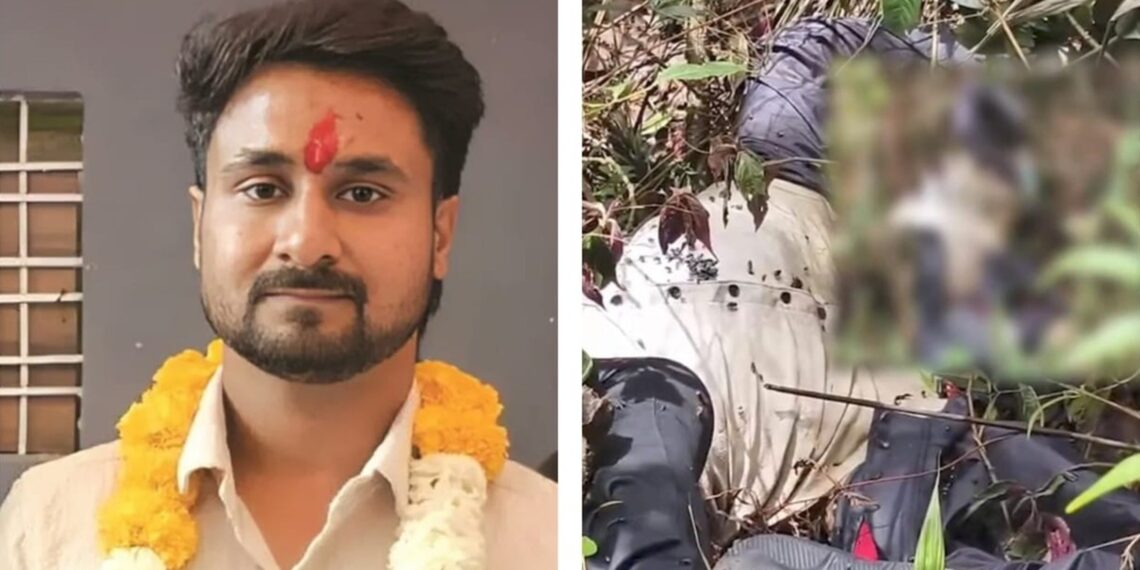Shillong: Authorities in Meghalaya have launched a murder investigation after the discovery of a partially decomposed body of the missing tourist from Indore.
The body was found in a remote gorge in Sohra (Cherrapunji) on Monday morning following a multi-agency search operation.
The tourist, identified as Raja Raghuvanshi, had been honeymooning in the region with his wife, Sonam.
The couple was reported missing on May 23, prompting a large-scale search effort involving state police, the State Disaster Response Force (SDRF), Special Operations Team (SOT), and members of a local mountaineering club.
At around 11:48 am, a police drone detected a body lying in a deep ravine below the Weisawdong Parking Lot at Riat Arliang.
Due to the difficult terrain, a rescue team had to retrieve the body and bring it to a more accessible location for examination.
Identification was made possible through a distinctive tattoo on the right hand bearing the name “Raja.”
Nearby, investigators recovered a woman’s white shirt, a strip of Pentra 40 tablets, a broken LCD screen likely from a Vivo mobile device, and a smartwatch.
A magisterial inquest was carried out on-site by Executive Magistrate Adiel R. Kynta between 3:30 and 4 pm, witnessed by local residents.
The remains have since been transferred to NEIGRIHMS in Shillong for a post-mortem to determine the exact cause of death.
East Khasi Hills Superintendent of Police confirmed that all avenues are being explored, including the possibility of foul play.
ALSO READ: Meghalaya: Decomposed body spotted near Sohra believed to be missing Indore tourist
“We are treating this as a potential homicide and have initiated the process to register a murder case. A Special Investigation Team will oversee the inquiry,” the SP stated.
The search for Sonam Raghuvanshi continues, with rescue teams still combing the rugged landscape for any signs of her whereabouts.
The tragic incident has raised concerns about tourist safety in the area, with authorities now under pressure to improve monitoring and emergency response protocols in the state’s popular but treacherous eco-tourism zones.















